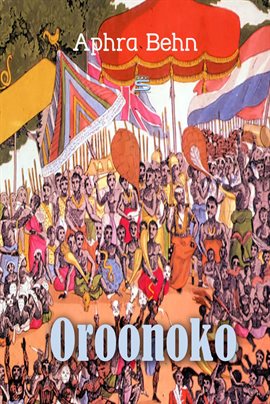
Additionally, his relationship with the slave society lets their different beliefs and ideas be revealed to the reader despite the author’s will. The subtitle of the story, The Royal Slave, can be implied as referring to this paradox. This degradation, beside other elements of Bakhtinian carnivalesque, makes his language a unique one, belonging neither to aristocrats anymore nor to the slaves, but simultaneously representing both. Oroonoko, who used to be the prince of Coramantien, is doomed to live as a slave in Surinam a British colony. Having had its protagonist in a carnivalistic world, Aphra Behn’s Oroonoko provides a polyphonic atmosphere in which different attitudes toward colonization can be heard. This entry was posted in Uncategorized by baileyramsay. If anything, let your wife live and live without you. In killing his wife, I thought Oroonoko selfish and misogynist. I felt like it was so unnecessary that they both had to die. While not always seeking a happy ending, I am, however, most definitely a reader who craves closure. I am ashamed that I seem to only write posts about what displeases me (I really did enjoy the texts of this class for the most part), I just felt that Oroonoko killing his wife and then dying was so grossly avoidable. Lastly, I was utterly furious at the outcome of this text. Because slave labour was so common and valuable to the economy at that time period, I thought it odd that a woman, whose lifestyle is most likely supported by slave labour of one form or another, would support revolt against their oppressors. I also found myself very confused that the narrator supported Caesar (Oroonoko) in his attempts at freedom. In alignment to our views, we can read back and somewhat agree with Behn’s supposed motivation of sparing awareness. While in my last posts I criticize the translated perspective of time, I think this text has great success and relevance in literature because it tries to support something that was very forward thinking in that day. From the comfort of their own homes they can vicariously witness the horrors and violence of other lands. By writing about the exotic and foreign nature of the oriental setting, this environment of the unknown appeals to English readers as a safe visit to the South. I find it contradictory that a subject so brutal and harsh is written by a romantic view. While Behn’s success as a writer was due to her ability to write like a man, she tries to appeal to the public and struggles of oppressed black slaves through romantic eyes.

Not only does the story tell of the struggles of the ultimate minority in that time period, but it is told by a woman. Having this narrator interpret and support the rebellion of black slaves was what I thought unusual and unexpected. Narrated by the first and second hand witness of the story, Aphra Behn’s “Oroonoko” is told by the perspective of a wealthy English woman.


 0 kommentar(er)
0 kommentar(er)
